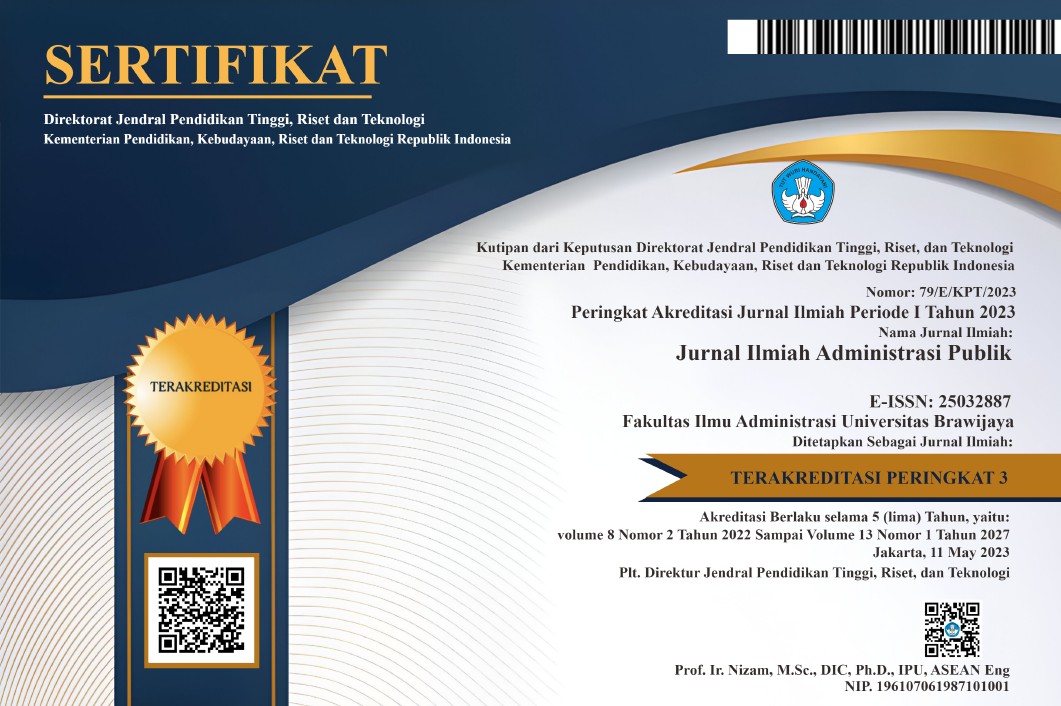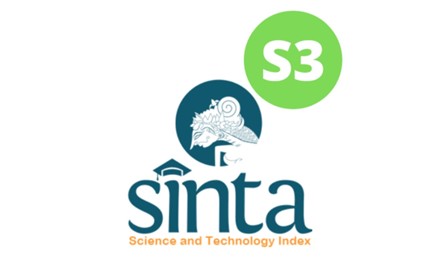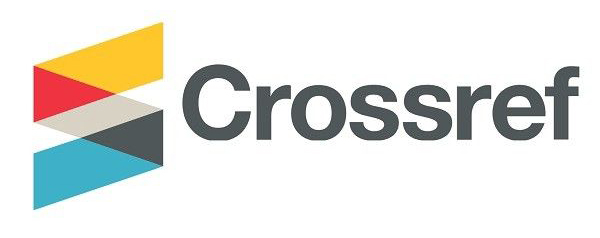Penerapan Protokol Kesehatan Covid-19 di Lingkungan Kerja dalam Perspektif Planned Behavioral Theory
DOI:
https://doi.org/10.21776/ub.jiap/2023.009.01.1Keywords:
protokol kesehatan covid-19, planned behavioral theory, Organisasi Publik, Lingkungan Kerja, covid-9 health protocol; Planned Behavioral Theory; public organization; work environmentAbstract
The purpose of this study was to determine the application of the Covid-19 health protocol in the work environment based on the Perspective of Planned Behavioral Theory in public organizations in East Java Province, Indonesia. Based on the analysis carried out, the results obtained that a) Attitude has a positive and significant effect on ASN behavior in implementing health protocols in the work environment in the "New Normal" phase; b) Subjective Norms have a positive and significant effect on ASN behavior in the application of health protocols in the work environment in the "New Normal" phase; c) Behavioral control has a positive and significant effect on the behavior of ASN in the application of health protocols in the work environment in the "New Normal" phase; and d) Intention has a positive and significant effect on ASN behavior in the application of health protocols in the work environment in the "New Normal" phase.
References
Ajzen, I. (1991). The Theory Of Planned Behavior. Organizational Behavior And Human Decision Processes, 50(2), 179–211.
Azwar, S. (2011). Sikap dan Perilaku dalam: Sikap Manusia Teori dan Pengukurannya ed. Pustaka Pelajar.
Badan Pusat Statistik Kota Surabaya. (n.d.). Kecamatan Bulak dalam Angka Th.2020.
Darmawati. (2019). Pengaruh Sikap, Norma Subjektif, dan Persepsi Kontrol Perilaku terhadap Perilaku Berwirausaha dengan Niat Berwirausaha sebagai Variabel Intevening pada Mahasiswa Fakultas Ekonomi Bisnis Islam Universitas Islam Negeri Alauddin Makassar. Skripsi. Universitas Islam Negeri Alauddin Makassar.
Doanh, D. C, & Bernat. (2019). Entrepreneurial Self-Efficacy and Intention among Vietnamese Students: A Meta-Analytic Path Analysis Based on the Theory of Planned Behavior. Procedia Computer Science, 159, 2447–2460. https://doi.org/10.1016/j.procs.2019.09.420
Fishbein, M., & Ajzen. I. (1975). Belief, Attitude, Intention and Behavior: An Introduction to Theory and Research. Addison-Wesley Publishing.
Garson. (2016). Partial Least Squares.: Regression & Structural Equation Models, Statistical Publishing Associate
Gordon, J. R. (2002). Organizational Behavior, A Diagnostic Approach. 7th edition. Prentice Hall.
George, J. M., & Jones, G. R. (2002). Organizational Behaviour. Prentice Hall,
Robbins, S. P., & Judge, T. A. (2013). Organizational Behavior 15th Edition, Person Education Limited.
Shafritz, J. M. & Russel, E. W. (2015). Introducing Public Administration. Longman.
Verma, V. K., & Chandra, B. (2018). Intention to Implement Green Hotel Practices: Evidence from Indian Hotel Industry. International Journal of Management Practice (UMP), 11(1), 1-20. 10.1504/IJMP.2018.10008645
Downloads
Published
Issue
Section
Categories
License
Copyright (c) 2023 Jurnal Ilmiah Administrasi Publik

This work is licensed under a Creative Commons Attribution-NonCommercial 4.0 International License.
If your paper is accepted, the author identified as the formal corresponding author for the paper will receive an email prompting them to login into Author Services; where via the JIAP Author Licensing Service they will be able to complete the license agreement on behalf of all authors on the paper.














